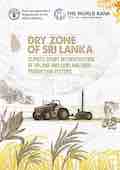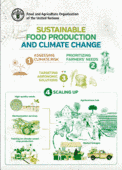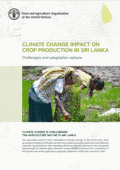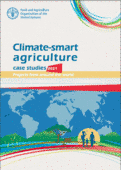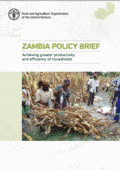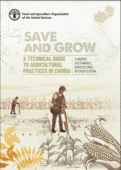Publications
FAO and the World Bank, in partnership with and with funding from the German Federal Ministry of Food and Agriculture, and in cooperation with the Government of Sri Lanka have developed a guide for the climate-smart intensification of upland and lowland crop production systems in the dry-zone of Sri Lanka. The first edition focuses on most relevant crops selected by the Government of Sri Lanka: maize, groundnut, and rice
The brochure provides a brief overview of two projects implemented by FAO's Plant Production and Protection Division and when combined create a model that can be adapted and used in various different regions.
This policy brief explores the agricultural sector in Sri Lanka and climate change related challenges. Prolonged droughts and floods, sometimes in rapid succession, have adversely affected national crop production with cascading effects on farmers’ incomes at the household level through to national gross domestic product (GDP) resulting in the contraction of the growth rate of the agriculture sector by 4 percent in 2016 and 1 percent in 2017. Policies play a decisive role in setting up a proper enabling environment that accelerate growth and sustain resilience of the agriculture sector against climate risks.
This publication describes climate-smart agriculture (CSA) case studies from around the world, showing how the approach is implemented to address challenges related to climate change and agriculture.The case studies discuss context-specific activities that sustainably increase agricultural productivity and incomes, adapt and build resilience of people and food systems to climate change, and reduce and/or remove greenhouse gas emissions where possible.
In Zambia, limited knowledge on climate-smart agricultural practices and poor access to sustainable mechanization are barriers for farmers to invest in agriculture. This policy brief explores ways to achieve greater efficiency and productivity of households through climate-smart agricultural practices in Zambia. With targeted agronomic practices, farmers can increase their production and income in a climate-smart way.
The goal of this manual is to serve as a tool that allows readers to access up to date information about various agricultural practices and their advantages and disadvantages. This guide has been developed for extension officers in both the public and the private, including those interested in agricultural development in Zambia.

